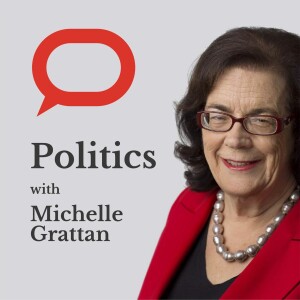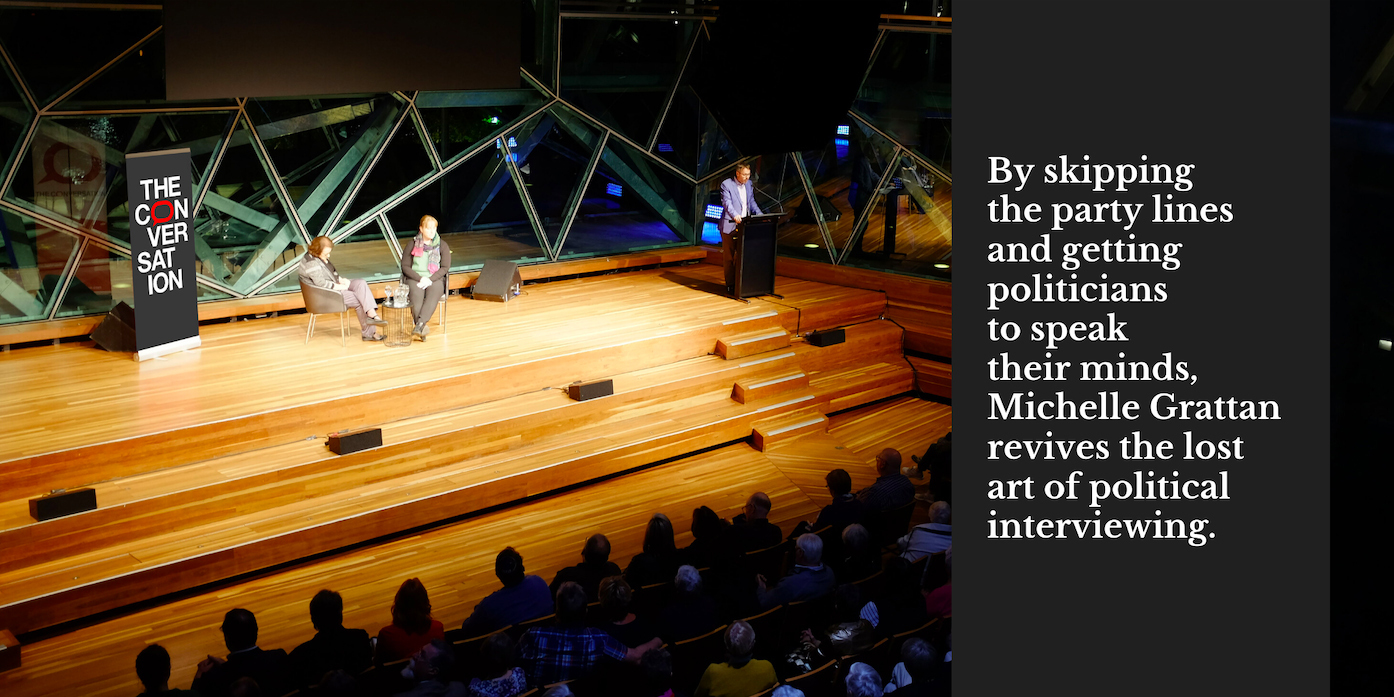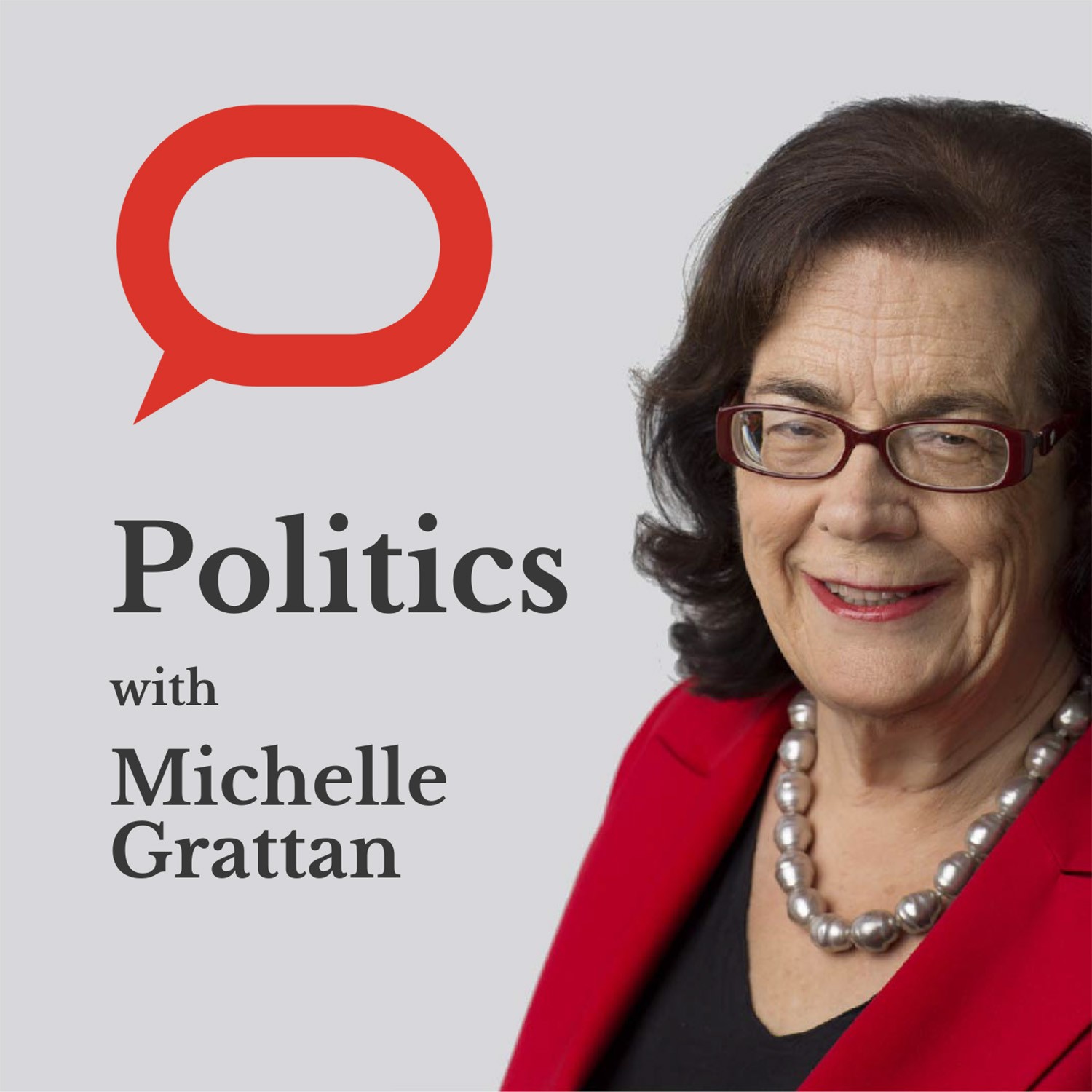Episodes

Thursday Jul 20, 2023
Thursday Jul 20, 2023
The Voice to Parliament reached another milestone this week, with the official essays for the Yes and No cases published online by the Australian Electoral Commission. These will be sent to all Australian electors in the lead up to the vote, which will be in the last quarter of the year
In recent weeks, polls have suggested the “yes” vote is on the slide, and has an uphill battle if it is to be successful.
In this podcast, we talk with two Indigenous senators, The Greens’ Dorinda Cox, and Liberal Kerrynne Liddle. Cox is campaigning for the Voice, while Liddle does not believe a Voice will achieve the practical outcomes those in favour are championing.

Wednesday Jul 19, 2023
Wednesday Jul 19, 2023
As well as her interviews with politicians and experts, Politics with Michelle Grattan includes “Word from The Hill”, where she discusses the news with members of The Conversation’s politics team.
In this podcast Michelle and politics + society editor Amanda Dunn discuss Premier Dan Andrews’ surprise decision to pull Victoria out of hosting the 2026 Commonwealth Games. They also canvass the official yes and no cases issued this week for the Voice referendum, and Labor frontbencher Andrew Leigh’s strong speech warning of the excessive level of factional control within the Labor Party.

Friday Jul 14, 2023
Friday Jul 14, 2023
For months, speculation has swirled about the appointment of a new governor of the Reserve Bank, a key position in the management of the Australian economy.
The present governor, Philip Lowe, has faced sharp criticism, especially over his prediction interest rates would be held steady until 2024, which proved wrong. It always seemed unlikely he would get another term.
Now the government has named his successor – the present deputy governor Michele Bullock. She will be the first woman to hold the position.
From the government’s point of view, it is a cautious appointment, signalling both continuity and change. Bullock is of the bank, but she will oversee the reforms that have come out of the review of its operations.

Monday Jul 10, 2023
Monday Jul 10, 2023
The Robodebt royal commission’s report has excoriated a raft of former ministers, especially Scott Morrison, who was a main instigator of the program, as well as public servants who were involved.
What we don’t know is who has been referred for prosecution or other action, because the names are in a sealed section of the report.
When in opposition, Bill Shorten pursued the scandal, mobilising a class action. Now Shorten is Minister for Government Services, overseeing a department that in an earlier iteration was at the centre of Robodebt. He’s also Minister for the National Disability Insurance Scheme.
In this podcast, Shorten joins The Conversation to discuss the aftermath of the royal commission report, and progress in reforming the NDIS.

Thursday Jul 06, 2023
Thursday Jul 06, 2023
Next year’s American presidential election is shaping up to be extraordinary. Donald Trump is favoured to be the Republican candidate, despite facing multiple charges over removing classified documents. President Joe Biden has indicated he intends to run again, despite the fact he’ll be 82 at the time of the poll and 86 if he completed another four-year term.
In this podcast, author Bruce Wolpe - a senior fellow at the United States Centre at the University of Sydney, who previously worked with the Democratic Party in Congress, discusses his new book “Trump’s Australia”. Wolpe argues a second Trump term would have shocking consequences for Australia.

Wednesday Jun 21, 2023
Wednesday Jun 21, 2023
The next federal election could be conducted under dramatically reformed electoral laws, with caps on spending and donations, and a much lower disclosure threshold for the disclosure of donations.
The changes, being worked up by Special Minister Don Farrell, would also trim the wings of third parties, such as Simon Holmes à Court’s Climate 200.
Farrell tells The Conversation’s Politics Podcast he is not waiting for the final report of the parliamentary Joint Standing Committee on Electoral Matters, which in its interim report has recommended a set of reforms broadly in line with Labor policy. The report was tabled on Monday.
Farrell says waiting until the final report comes at the end of the year would make it harder to get legislation in place for the next election, due by May 2025. He will have negotiations over the coming months and wants as much bipartisanship as possible, despite the Coalition opposing key recommendations of the majority report.

Friday Jun 16, 2023
Friday Jun 16, 2023
For most voters, the cost of living is their major current concern. Rising interest rates and high prices for power, groceries and other necessities are hurting in particular lower and middle income people.
Nowhere is this more the case than in Sydney’s western suburbs.
Independent Dai Le, who holds the seat of Fowler in Sydney’s west, managed to pull off the unthinkable at last year’s federal election. Le, who financed her campaign with a very modest budget, defeated Labor’s Kristina Keneally, who was attempting to move from the Senate to the lower house.
Fowler has traditionally been Labor heartland. Le is the first non-Labor MP to represent the area, one of Australia’s most multicultural electorates.

Thursday Jun 08, 2023
Thursday Jun 08, 2023
Artificial intelligence is a challenging policy area that’s moving towards the centre stage of public and government attention. Some experts emphasise the immense potential of AI, while others are deeply troubled about the ramifications the technology may have on humans.
AI has the potential to open up employment opportunities, but also to replace many jobs.
The Albanese government has recently begun consultations as it formulates a policy for seeking to ensure AI technology is both safe and responsible.
In this podcast, Ed Husic, the minister for industry and science, who is overseeing the AI policy development process, joins us to talk about this new frontier.

Thursday Jun 01, 2023
Thursday Jun 01, 2023
The Coalition’s decision to oppose the Voice to Parliament has put its moderate members in a jam. Some moderates are active yes advocates, while others are trying to keep low profiles.
Bridget Archer, the outspoken Liberal MP for Bass, is a vocal yes campaigner. More generally, she is also taking a lead in urging the Liberal party to undertake root-and-branch reform.
Archer is pushing for extensive change in a party that is electorally on the ropes, out of office everywhere except her home state of Tasmania.
Since entering parliament in 2019, Archer has crossed the floor on 27 occasion to vote against her party. She admits there are those colleagues who avoid her, but says her decisions are always based on what is in the best interest of her community, and argues the strength of the Liberal Party historically has been for members to be able to sometimes disagree and to do so respectfully.

Thursday May 25, 2023
Thursday May 25, 2023
The federal budget gave a much-needed, but very modest, increase to those on JobSeeker and associated payments. However, it didn’t address that other important issue of the unemployed: how to help as many JobSeekers as possible to get into work, whether full- or part-time.
This will be canvassed in the government’s coming white paper on employment. It’s already, however, before a parliamentary inquiry into employment services.
In this podcast, Julian Hill, the Labor member for Bruce, who chairs that inquiry, joins us to discuss the job market and getting people into work. Hill has also been actively working for Julian Assange’s release from London’s maximum-security Belmarsh Prison.
And he boasts a huge following on TikTok, the Chinese-owned social media platform, which is banned on official government devices.

